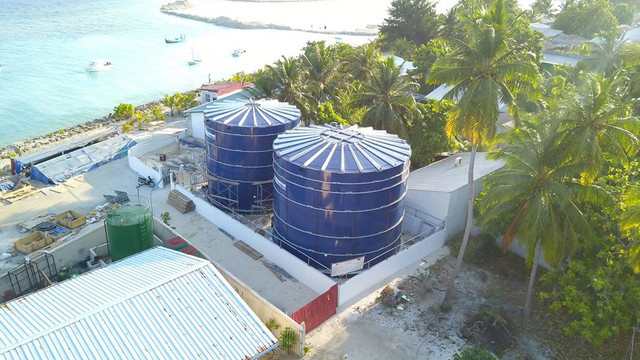Reflections on a journey of rethinking capacity building
Capacity building initiatives within the international development sector come with Northern biases. This blog describes how IIED aimed to reframe its thinking about capacity building by learning from a grassroots social movement in the Philippines.


Laguna de Bay is the Philippines' largest lake and a vital natural resource. (Photo: IIED)
For some time, IIED has been reflecting on what decolonising development means for us as a global North-based development organisation. We are reflecting on how we hold power and privilege that stem from colonialism and how this power manifests in practices that affect our relationships with our partner organisations.
IIED has looked to our partners, including those from grassroots organisations representing women, Indigenous and queer groups in the global South, to help us understand what decolonisation means and how IIED can implement it.
We have been unpacking what ‘decolonising capacity building’ means with the Liyang network, a Philippines-based advocacy network with a membership comprised mostly of women, LGBTQI+ and Indigenous People. The Liyang network amplifies the calls to action of environmental and human rights defenders in the Philippines, especially of rural women, children and Indigenous People in Mindanao.
We wanted to learn from Liyang network members’ unique approaches to learning from one another so that IIED, too, can uncover Northern biases in our capacity building and use this knowledge to adopt better approaches to knowledge exchange and capacity building.
We wanted to learn from the network’s community immersions, their main learning method, in which network members live with and learn from the communities they represent.
I participated in one of their community immersions for a week in October 2023, when I was hosted by a fisher community in the Philippines. This community is losing its way of life due to falling fish stocks caused by climate change and environmental degradation. It is threatened by large-scale infrastructure projects and is under pressure to relocate.

Laguna de Bay supports irrigation, fisheries and domestic water supply for the region (Photo: IIED)
Using immersive learning
The Liyang network’s main learning method is community immersion, when five to 15 Liyang network members are hosted by people’s organisations from marginalised groups in Philippine society, including farmers and low-income urban and Indigenous communities.
By understanding firsthand the challenges these communities face, network members are better able to stay true to their mission of advocating for the most marginalised in society.
For IIED, a key takeaway is the need to engage in immersive learning with our partners through secondments and in-person learning exchanges. Understanding and partaking in the lived reality of our partners enables us to build more trusting and equitable relationships.
Such partnerships can facilitate better communication so that we can provide capacity building that is fit for purpose.
Engaging in deep reflection
Large parts of Liyang community immersions are dedicated to reflecting on community experiences, and network members undertake daily reflections to synthesise their learning. For Liyang members, the immersions help to ground theory in practice.
Network members also employ storytelling, including sharing personal experiences from working with other communities to explore linkages and parallels between issues. They sing songs about inspiring social movements and grassroots leaders to draw parallels between their experiences and those of previous generations and in different locations. These reflections synthesise learning, deepen connections between network members, and strengthen their commitment to serving marginalised communities.
At IIED, my team has begun incorporating reflection into our workshops. Giving workshop participants a chance to reflect and suggest agenda changes allows for greater collaboration and ownership of workshop outcomes.
Flexible funding and programming
Liyang network members work in flexible, responsive and adaptive ways. They can rapidly organise training on topics such as land rights and communications or provide hands-on support for agroecology projects.
To match Liyang’s ways of working, IIED, in our role as grant manager, provided greater programme management flexibility, including on funds, timelines for delivering activities and ways of working.
This translated to fewer conditionalities on the use of funds, such as providing core funding and honorariums rather than payment based on deliverables. In our ways of working, we provided greater flexibility by communicating through preferred platforms such as WhatsApp and organising meeting times to suit our partners.
IIED is undergoing an institutional change process in which we are critically reflecting on our positionality in different aspects of our work with external partners, including our ways of working. Our work on rethinking capacity building can inform different ways of working with our partners.
We hope to use the lessons from this work for upscaling and replication across IIED and its partnerships, and we invite our partners and other like-minded organisations to join us in our journey of self-reflection and learning about how to move towards decolonising development.



